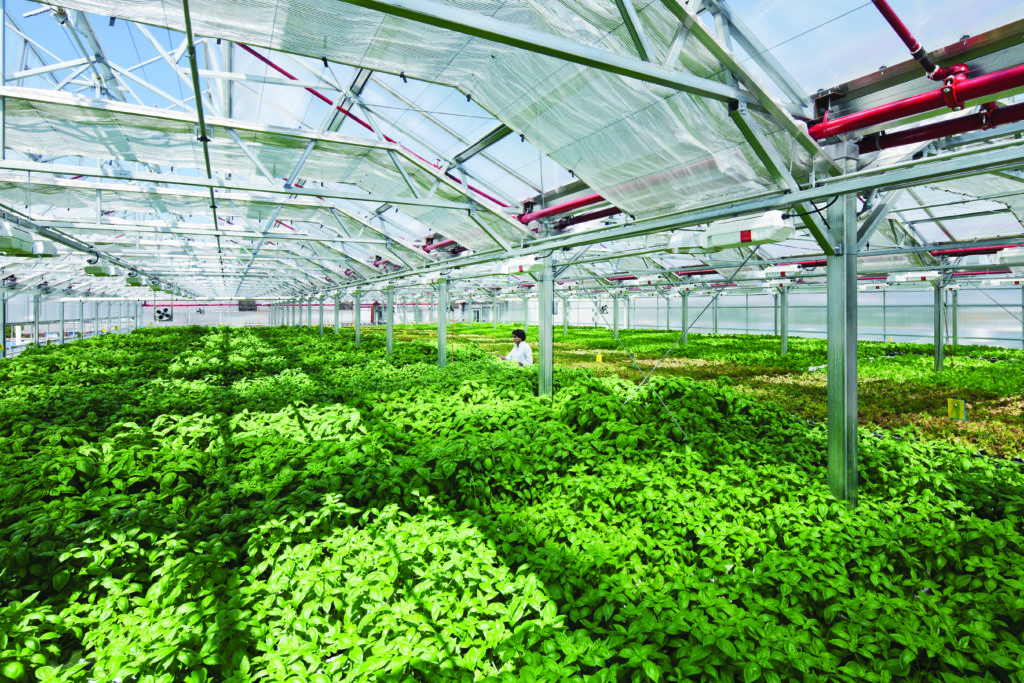
Sep 5, 2018Sunny in the City: Gotham Greens stays horizontal, relies on natural light
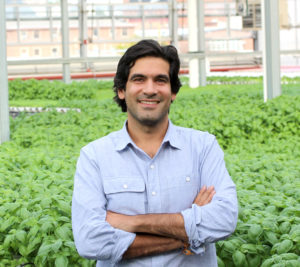
While other urban farms are going vertical and becoming reliant on LED lights, Gotham Greens is staying horizontal, soaking up the rays of the dear old sun.
But Gotham Greens isn’t lying down on the job – and in fact, continues to grow quickly. CEO Viraj Puri founded the company in 2009 with CFO Eric Haley. In 2011, the company opened a 15,000-square-foot greenhouse, a prototype built on the roof of a former bowling alley, which the company calls “the first commercial greenhouse facility of its kind in the U.S.”
The Brooklyn-based company now has four operational greenhouses – three in New York City and a fourth in Chicago. The corporate leaders aim to double that number soon. Two new projects, one in Baltimore and another in Chicago are planned to be larger than 100,000 square feet. At least two other projects will be announced later this year, Puri said.
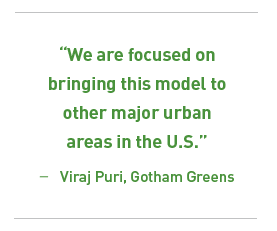 “We are focused on bringing this model to other major urban areas in the U.S.,” Puri said. “We currently have another 500,000 square feet under development across five states. Our goal is to be a national supplier of locally-grown produce.”
“We are focused on bringing this model to other major urban areas in the U.S.,” Puri said. “We currently have another 500,000 square feet under development across five states. Our goal is to be a national supplier of locally-grown produce.”
The four greenhouses grow more than 20 types of leafy greens, lettuces and herbs such as Green Leaf, Oak Leaf, Romaine, Butter, Arugula and Iceberg. The Gotham Greens brand sells several salad mix blends and also grows custom varieties for restaurant and retail partners such as Whole Foods Market and Tender Greens.
The plants are grown hydroponically with re-circulated water. Greenhouses are run only with renewable energy, Puri said. Although there are supplemental lights in the greenhouses, plants are aligned horizontally to take advantage of the natural sunlight.

“While we are impressed with the advancements in LEDs, we’ve found that in terms of yields, flavor and energy usage, there’s nothing more effective than the sun,” Puri said. “Our highly productive and efficient production techniques are capable of producing over 50 percent more crop than conventional greenhouses while using 25 percent less energy per pound of crop produced.”
Gotham Greens grows in a sterile environment without the use of pesticides – practices that could possibly put it in line for organic certification, given the USDA’s recent statements about hydroponics and other soilless growing techniques.
“We are considering pursuing an organic label but we are still waiting on further clarification on the USDA Organic Program as it relates to hydroponics,” Puri said. “Until then, we feel good about our sustainable growing practices and pesticide-free produce. Thoughtfully practiced hydroponic cultivation in many ways meets or even exceeds the high standard set by organic certification standards.”
And while Puri said the organic standard is “in many ways the gold standard,” he added it doesn’t touch other concerns such as a company’s water and energy use, worker welfare and food safety.
“For us, being ‘local’ also means being an active, responsible part of the community, creating year-round jobs with livable wages and upholding stringent third-party audits around food safety,” Puri said.
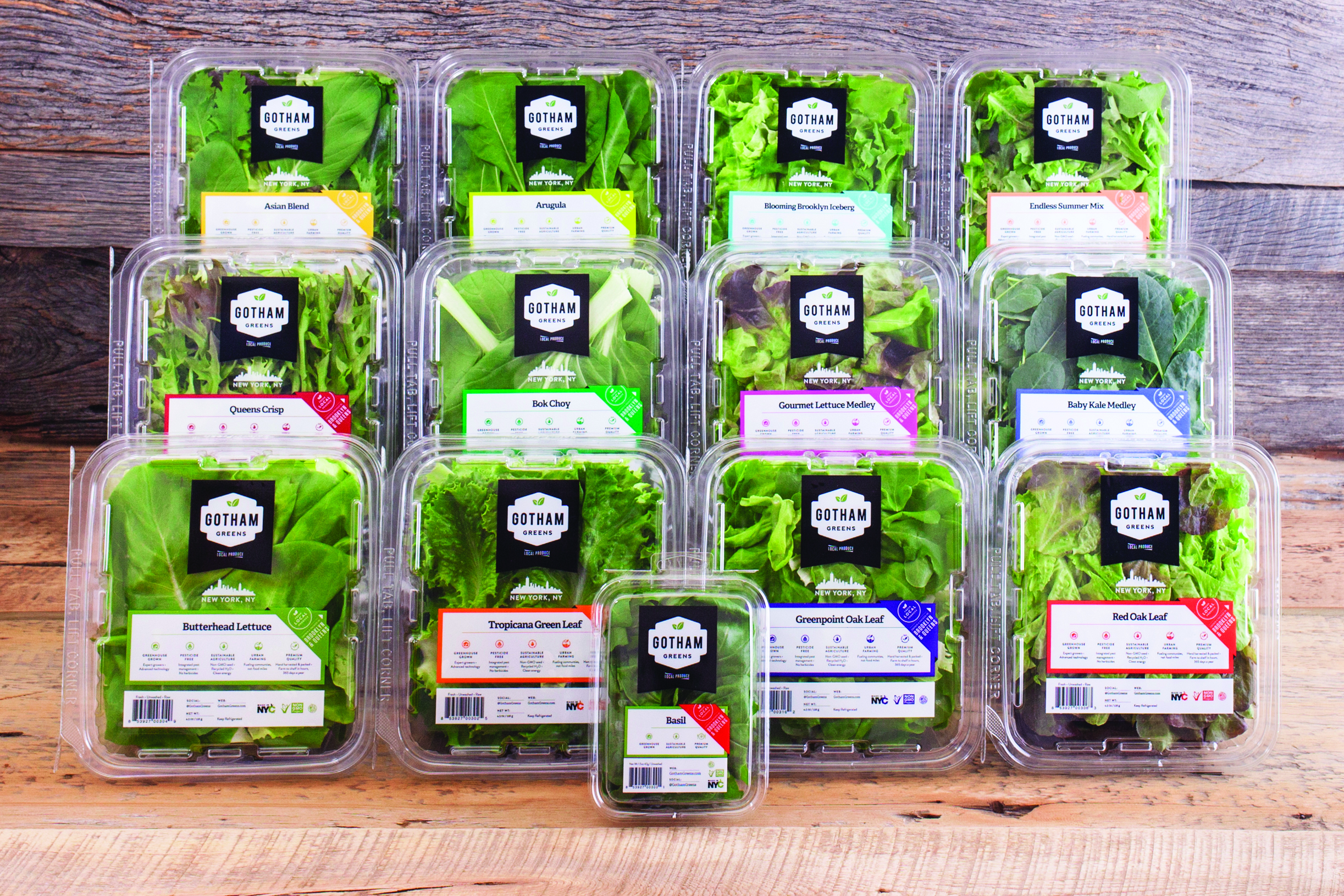
Besides using renewable energy, less water and its local commitment, there’s also an aspect of urban renewal to many of the company’s ventures. Several of the rooftop greenhouses are located on historic buildings, in post-industrial urban developments. Its largest greenhouse in New York is on the roof of a building in the Ideal Toy Co. factory complex dating back to the 1920s. The Baltimore greenhouse announced in May will be built on the site of the former Bethlehem Steel mill on Sparrow’s Point.
“Their unique approach to urban agriculture, in an area once known for steelmaking and shipbuilding, will be an asset to the community and our state’s economy,” Maryland Gov. Larry Hogan said in the announcement.
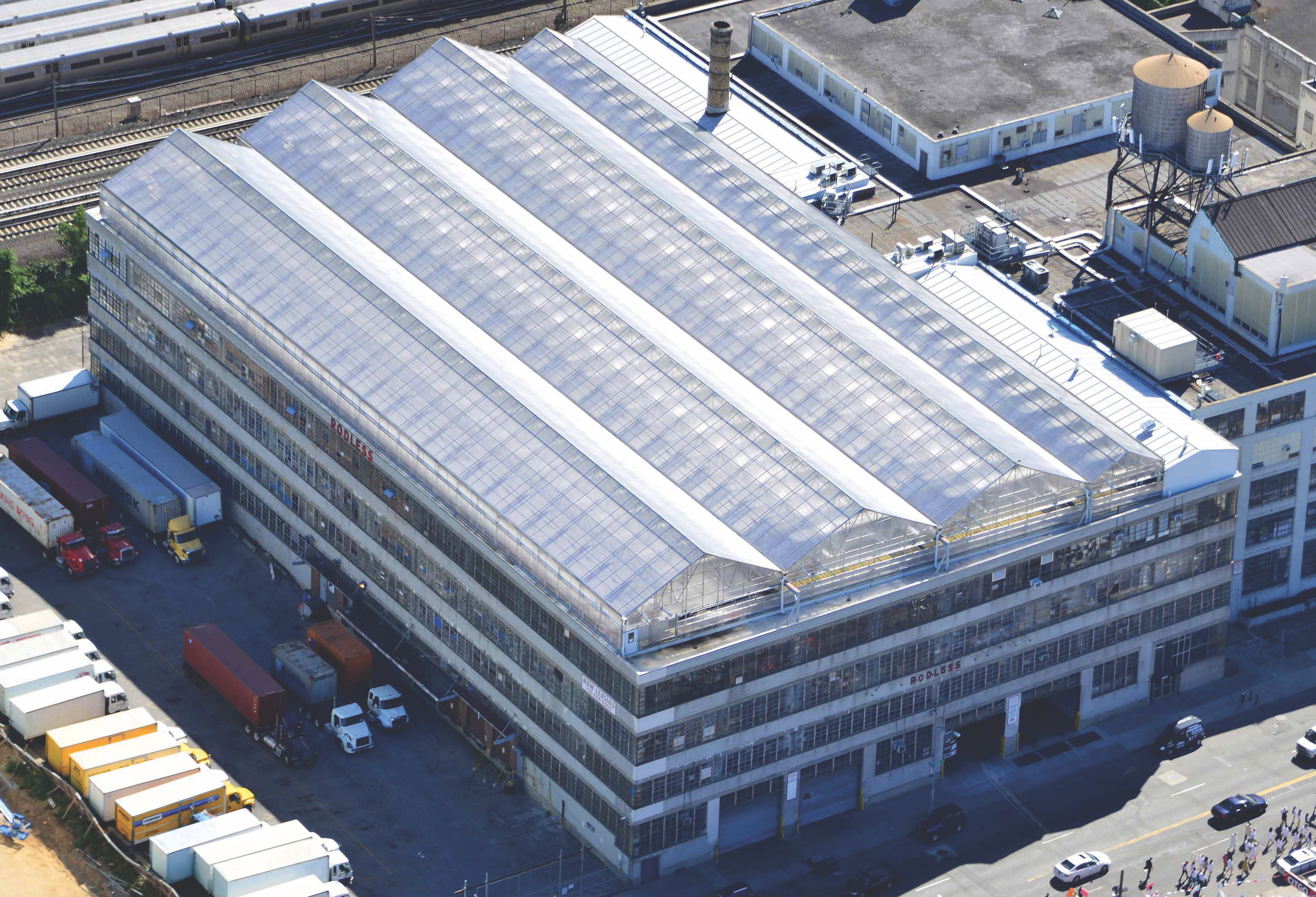
In the same announcement, Puri outlined his vision for urban agriculture. To him, it’s “about reconnecting with the community through food, jobs and economic development.”
That mission has attracted investors. In June, Gotham Greens announced $29 million of new investment. The new round brings the company’s total funding so far to $45 million, not including bank debt.
Creadev, a global private equity investment firm controlled by the Mulliez family, was a significant investor in the last round of funding. Creadev USA Managing Director Delphine Descamps called Gotham Greens “a clear market leader.”
“Indoor farming is one of the most exciting and promising sectors in the world of food and ag-tech,” Descamps said in a release. “We were highly impressed by the company’s proven track record, greenhouse profitability, exceptional product quality and human-driven values. We believe that the Gotham Greens team will continue to significantly influence how fresh produce is grown and distributed both in the U.S. and globally.”
– Stephen Kloosterman, VGN Associate Editor
















